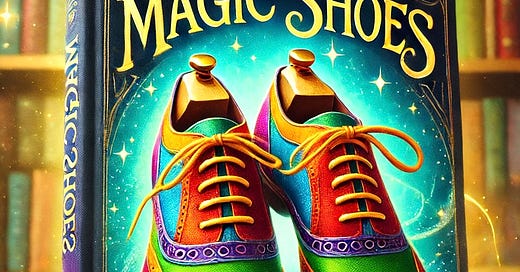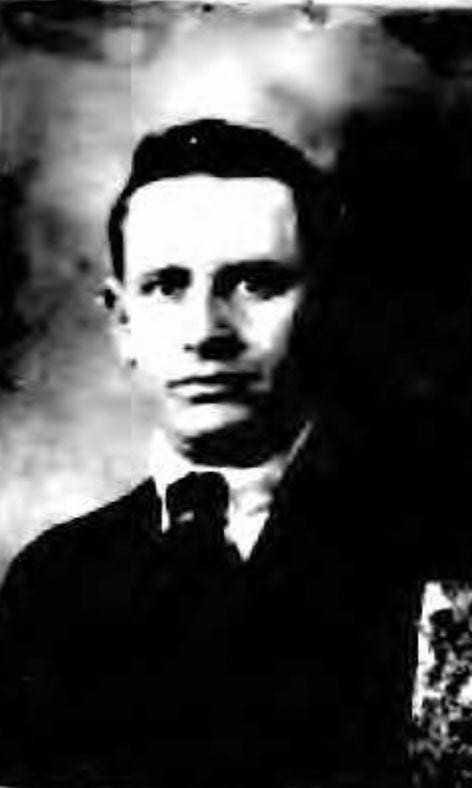I drift off into slumber on a bench beneath a starry sky.
And awaken on Tindley & Everett’s chaise lounge.
“I think you should leave,” says the gentleman standing above me. “May I have my book,” he asks crossly.
Again, On the Road is lying across my chest.
“Please—take it!” I don’t want to see another page nor touch it.
“I think you should seek help,” he mutters, snatching up his prized first edition.
I sit up and shrug. “It’s these shoes,” I say, looking down.
“I noticed,” he sneers.
“Sorry,” I say sheepishly as my magic shoes walk me out.
I want to turn left, make a run for Charing Cross Road, but the shoes turn the other direction toward St. Martin’s Lane.
I try to pick up speed—but involuntarily skid to a halt in front of a hunter green shopped called Colin Narbeth & Son Ltd. Its display window is filled with old banknotes—paper money—from all over the world. The shoes walk me inside and down a narrow staircase to the coin part of this numismatist emporium.
The long glass counter displays a slew of old coins from all parts of the world. I don’t know what I’m looking for—or what I’m supposed to find. But upon arrival at the USA section, my shoes stop dead in their tracks—and when I try to lift my feet they remain super-glued to the floor.
Okay, okay—I get it: I’m supposed to choose a coin.
The Buffalo Nickel lies within sight. In my opinion, it is one of the most handsome coins ever minted. So, I guess that must be it.
The proprietor cheerfully obliges my request to study this nickel up close.
The moment I focus on the date—1938—I am somewhere else.
When? Presumably 1938.
Where? I’m in a rectangular room. It is a subterranean den or office, daylight penetrating from a high-up window adjacent to outside stairs.
Additional illumination comes from a single incandescent lamp. The only furniture is a plain wooden desk and chair.
An ephemeral presence manifests itself and, as my eyes grow accustomed to the dim wattage, I realize I’m looking at my father’s father—the grandfather I never met. He is wearing a dark suit, white shirt and tie. His large rectangular forehead takes up more than a third of his face.
I ask, “are you…?”
He nods. “Henry Eringer. Shalom. And welcome to my travel agency.”
“In New York City?”
“The Lower East Side of Manhattan,” he answers. “Broome Street. A travel agency with a twist!” There is a glint in his eye, as if he wants to confide something important.
Intrigued, I cock my head. “What kind of a twist?”
“A very important twist—one that must remain a secret between you and me.” He furtively looks up through the window to make his point.
“Why a secret?”
Henry animatedly puts his right forefinger to his lips, removes it and takes a breath to compose himself for whatever he has chosen to reveal. “The Jews in my home country of Poland are in grave danger,” he whispers. “I bring them to America, which is more difficult to emigrate to now than in 1913 when I arrived with my bride.”
I study the nickel, still in my palm. “I gather this is 1938.”
He nods solemnly. “A very grim and dangerous time for those I left behind. Ellis Island is closed. No more easy settlement in USA.” He gestures with his arms at the space we occupy. “I use my travel agency to smuggle themselves out of harm’s way in Poland to the land of the free.” He gestures both arms around his barren office. “You see? Easy to leave at a moment’s notice, if I must.”
“You’re running an underground railroad?”
Henry nods. “I am trying hard to rescue my people and save them from the horrors to come. Most poor souls want to remain where they are. They are oblivious to the danger. Or maybe they don’t want to see what’s coming. But for those who understand and see they are the danger, I am doing my best for them, even though it dangerous for me, too.”
“How so?
“What I do is against the law.”
I am astonished.
I’m astonished by just being here. But most of my astonishment stems from the great personal risk my grandfather is taking with this noble venture, all new to me.





